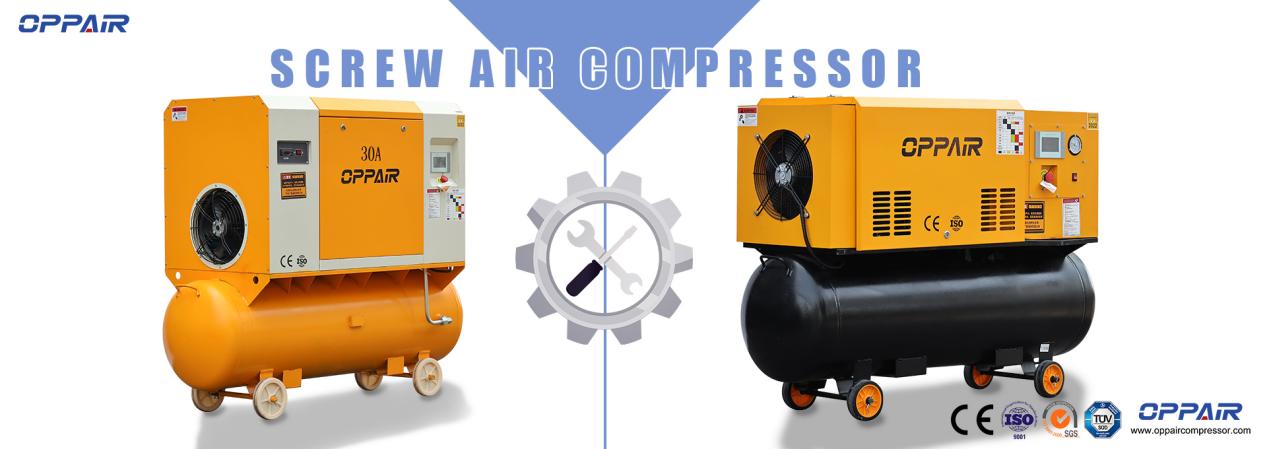If your compressor is in deteriorating condition and is facing retirement, or if it no longer meets your requirements, it may be time to find out what compressors are available and how to replace your old compressor with a new one. Purchasing a new air compressor is not as easy as buying new household items, which is why this article will look at whether it makes sense to replace an air compressor.
Do I really need to replace the air compressor?
Let’s start with a car. When you drive a brand new car out of the lot for the first time, you don’t think about buying another one. As time goes on, breakdowns and maintenance happen more and more frequently, and people start to question whether it’s worth putting a Band-Aid on a big wound, it might make more sense to buy a new car at this point. Air compressors are like cars, and it’s important to pay attention to various indicators that will tell you if you really need to replace your air compressor. The life cycle of a compressor is similar to that of a car. When the equipment is new and in excellent condition, there is no need to worry or consider whether you need new equipment. Once the compressors start to fail, performance decreases and maintenance costs increase. When this happens, it’s time to ask yourself an important question, is it time to replace my air compressor?
Whether you need to replace your air compressor will depend on many variables, which we’ll cover in this article. Let’s take a look at some indicators of the potential need for an air compressor replacement that could lead to it.
1.
A simple indicator that there is a problem with the compressor is shutting down during operation for no reason. Depending on the season and weather conditions, your air compressor may shut down due to high ambient temperatures and overheating. The cause of high temperatures can be as simple as a clogged cooler that needs to be unblocked or a dirty air filter that needs to be replaced, or it can be a more complex internal problem that needs to be addressed by a certified compressed air technician. If the downtime can be fixed by blowing the cooler and changing the air/intake filter, then there is no need to replace the air compressor, just keep up with compressor maintenance. However, if the problem is internal and caused by a major component failure, you must weigh the cost of repair versus new replacement and make a decision that is in the company’s interest.
2.
If your plant is experiencing a pressure drop, it could be an indication of a variety of problems with the plant that should be addressed as soon as possible. Typically, air compressors are set at a higher pressure than is required for standard operation. It is important to know the pressure settings of the end user (the machine operating with compressed air) and set the air compressor pressure according to those needs. Machine operators are often the first to notice a pressure drop, as low pressure can shut down the machinery they are working on or cause quality issues in the product being manufactured.
Before considering replacing an air compressor due to pressure drop, you should have a good understanding of your compressed air system and make sure there are no other variables/obstacles causing the pressure drop. It is very important to check all in-line filters to ensure that the filter element is not completely saturated. Also, it is important to check the piping system to ensure that the pipe diameter is suitable for the run length as well as the compressor capacity (HP or KW). It is not uncommon for small diameter pipes to extend over longer distances to create a pressure drop that ultimately affects the end user (machine).
If the filter and piping system checks are OK, but the pressure drop persists, this may indicate that the compressor is undersized for the facility’s current needs. This is a good time to check and see if any additional equipment and production needs have been added. If demand and flow requirements increase, current compressors will not be able to supply the facility with enough flow at the required pressure, causing a pressure drop across the system. In such cases, it is best to contact a compressed air sales professional for an air study to better understand your current air needs and identify the appropriate unit to handle new and future requirements.
Post time: Jan-29-2023





